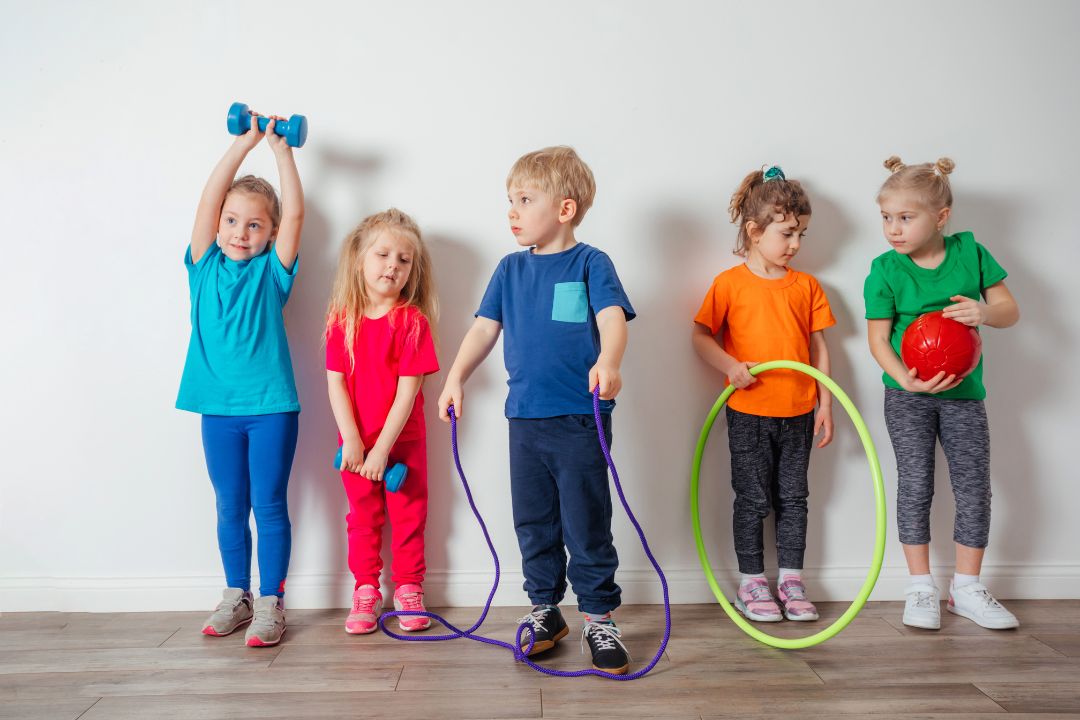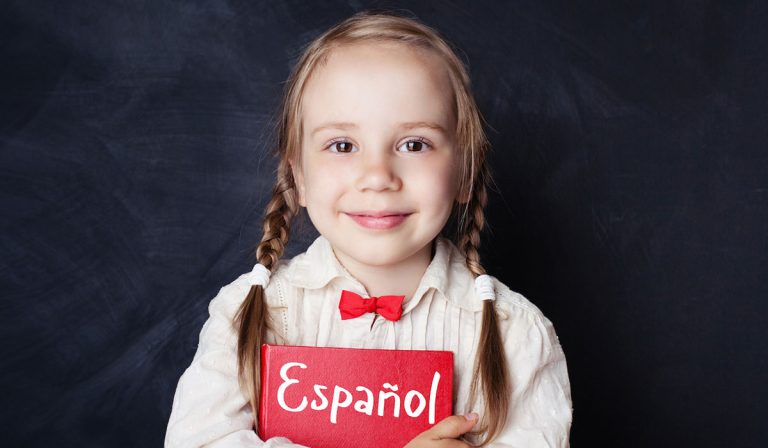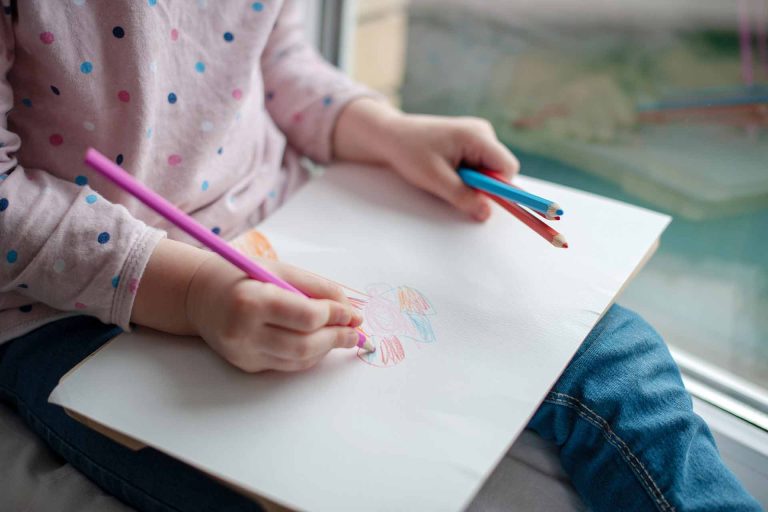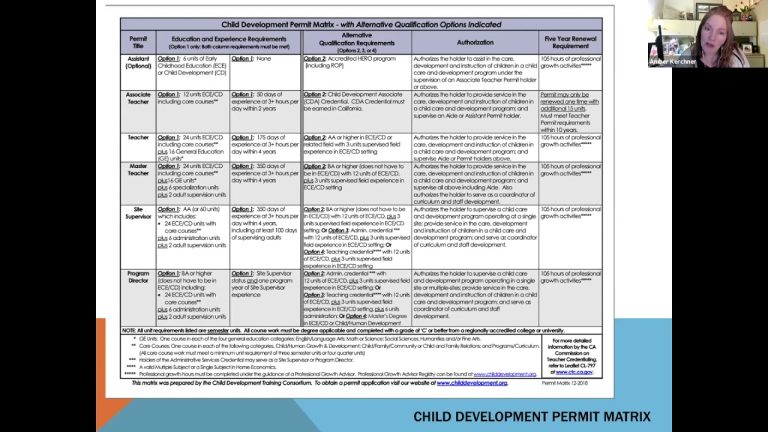What are the Benefits of Physical Activity for Preschoolers

Physical activity for preschoolers provides numerous benefits, including improved motor skills, enhanced cognitive development, and better overall physical health. It also helps with emotional regulation, and social interaction, and fosters a lifelong love for physical fitness.
Engaging in active play at a young age can support healthy growth and development, boosting strength, coordination, and flexibility. Moreover, regular physical activity in preschoolers is linked to better sleep patterns, reduced risk of obesity, and improved bone and muscle strength.
Furthermore, it encourages creativity, imagination, and problem-solving skills, nurturing a well-rounded and confident child. These benefits highlight the importance of integrating physical activity into the daily routine of preschoolers, promoting their holistic well-being and setting the foundation for a healthy lifestyle.
1. Benefits Of Physical Activity For Preschoolers
When it comes to the development of preschoolers, physical activity plays a crucial role in enhancing their overall well-being. Engaging in various forms of physical activity not only contributes to the physical health of preschoolers but also impacts their cognitive, social, and emotional development. This article explores the multifaceted benefits of physical activity for preschoolers, emphasizing the significance of incorporating active play into their daily routines.
Cognitive Development
Regular physical activity stimulates the brain, promoting enhanced cognitive development in preschoolers. Through activities such as running, jumping, and playing games, children develop improved concentration, problem-solving skills, and enhanced memory. Engaging in physical activities also fosters creativity and the ability to think critically, contributing to overall cognitive development.
Social And Emotional Development
Participating in physical activities offers preschoolers the opportunity to interact with their peers, fostering social skills and emotional development. Through group activities, children learn important lessons in cooperation, teamwork, and communication. Physical play also provides a platform for preschoolers to build self-confidence, resilience, and a positive self-image, nurturing their emotional well-being.
Physical Health
Engaging in physical activities from a young age sets the foundation for a healthy lifestyle. Regular exercise helps in the development of motor skills, coordination, and agility, contributing to overall physical health. Additionally, physical activity promotes bone and muscle development, enhances cardiovascular health, and reduces the risk of obesity and related health issues in preschoolers.
2. Boosting Cognitive Development
Physical activity plays a vital role in the cognitive development of preschoolers. The benefits extend beyond just physical health, as it also significantly impacts their brain functions and enhances their ability to learn, remember, and concentrate.
2.1 Improved Brain Function
Engaging in regular physical activity improves brain function by promoting the growth of new brain cells and enhancing the connections between them.
2.2 Enhanced Learning And Memory
Through physical activity, preschoolers develop enhanced learning abilities and memory retention. The increased blood flow and oxygen to the brain during exercise help improve cognitive processes, leading to better memory recall and information retention.
2.3 Increased Attention And Focus
Physical activity also contributes to increased attention and focus in preschoolers. It allows them to develop the ability to concentrate on tasks for longer periods, leading to improved academic performance and better behavioral outcomes.
3. Enhancing Social And Emotional Development
Physical activity in preschoolers has numerous benefits for their social and emotional development. It helps them build self-esteem, develop cooperation skills, and regulate emotions effectively. Additionally, it fosters positive interactions with peers and contributes to overall well-being.
Physical activity goes beyond simply keeping preschoolers active; it also plays a crucial role in enhancing their social and emotional development. Through engaging in various physical activities, preschoolers can build social skills, develop self-confidence, and learn how to effectively manage their emotions.
3.1 Building Social Skills
Engaging in physical activity provides preschoolers with opportunities to interact with their peers, fostering the development of important social skills. Whether it’s playing tag in the park or participating in group sports activities, preschoolers learn how to take turns, cooperate, and communicate with others. These interactions help them develop empathy, understand social norms, and build positive relationships with their peers.
3.2 Developing Self-confidence
Physical activity allows preschoolers to explore their abilities and develop a sense of self-confidence. Trying out new activities and mastering various skills gives them a sense of accomplishment, boosting their self-esteem. Whether it’s climbing a jungle gym or learning how to jump rope, each achievement builds their confidence and encourages them to take on new challenges.
3.3 Managing Emotions
Physical activity provides preschoolers with a healthy outlet to manage their emotions. Engaging in active play, such as running or dancing, helps release endorphins, which can elevate their mood and reduce stress levels. Moreover, physical activity allows them to channel their energy constructively, helping them to calm down and regulate their emotions effectively.
In conclusion, physical activity plays a crucial role in enhancing preschoolers’ social and emotional development. By building social skills, developing self-confidence, and effectively managing emotions, preschoolers benefit holistically from engaging in regular physical activity. Encouraging them to be active not only promotes healthy physical growth but also supports their overall well-being, setting a strong foundation for a happy and fulfilling future.
4. Promoting Physical Health
Physical activity in preschoolers offers numerous benefits, including improved gross motor skills, increased strength, and enhanced overall health. Regular exercise also promotes better sleep, reduces the risk of obesity, and boosts cognitive development, setting a strong foundation for lifelong physical well-being.
Regular physical activity is essential for preschoolers as it promotes their overall physical health and well-being. Engaging in physical activity at an early age sets a foundation for a healthy lifestyle, establishing habits that can benefit them throughout their lives.
4.1 Enhancing Motor Skills
Physical activity plays a vital role in enhancing preschoolers’ motor skills. Running, jumping, climbing, and skipping help them develop their gross motor skills, allowing them to control large muscle groups and perform everyday tasks with ease. Fine motor skills, crucial for tasks like writing and tying shoelaces, can also be improved through activities like drawing, threading beads, and playing with building blocks.
4.2 Promoting Healthy Growth And Weight Management
Engaging in physical activity during the preschool years promotes healthy growth and weight management. Regular exercise helps children maintain a healthy weight by burning calories and reducing the risk of obesity. Additionally, physical activity stimulates the production of growth hormones, contributing to proper growth and development.
4.3 Strengthening Muscles And Bones
Physical activity in preschoolers plays a significant role in strengthening their muscles and bones. Activities like climbing, swinging, and crawling help develop muscle strength, enhancing their physical abilities and coordination. Weight-bearing exercises, such as walking and running, promote bone density, reducing the risk of fractures later in life. Ensuring proper muscle and bone development in the early years lays a foundation for a healthy and strong body in the future.
To sum up, physical activity for preschoolers is highly beneficial in promoting their physical health. It enhances their motor skills, promotes healthy growth and weight management, as well as strengthens their muscles and bones. Encouraging regular physical activity sets the stage for a healthy and active lifestyle as they grow.
5. Tips For Encouraging Physical Activity
Preschoolers benefit greatly from physical activity, enhancing their overall health and development. It aids in building strong bones and muscles, improving coordination, and boosting cognitive abilities. Encouraging active play, offering a variety of activities, and being a role model can promote physical fitness in young children.
Encouraging physical activity in preschoolers is crucial for their overall development and well-being. It helps in improving their motor skills, strength, coordination, and cognitive abilities. By providing a safe environment, offering a variety of activities, and setting a positive example, you can ensure that your preschooler stays active and healthy.
5.1 Provide A Safe Environment
Creating a safe environment is essential to encourage physical activity in preschoolers. Here are some ways to ensure their safety:
- Remove any potential hazards or obstacles in the play area.
- Check for loose or sharp objects that may cause accidents.
- Use age-appropriate equipment and toys.
- Monitor the play area to prevent any injuries.
5.2 Offer A Variety Of Activities
Offering a variety of physical activities will keep your preschooler engaged and excited. Here are some activities you can include:
| Indoor Activities | Outdoor Activities |
|---|---|
|
|
Remember, offering a mix of activities targeting different muscle groups and skills will help in their overall development.
5.3 Set A Positive Example
Children often mimic what they see, so setting a positive example and being physically active yourself is important. Here’s how you can do it:
- Join your child in physical activities and make it a fun and bonding experience.
- Encourage them to participate in activities that you enjoy, such as walking or cycling.
- Limit screen time and opt for active family outings instead.
- Praise and acknowledge their efforts to motivate them further.
By being a role model and encouraging physical activity, you are instilling healthy habits in your preschooler that will last a lifetime.

Frequently Asked Questions For What Are The Benefits Of Physical Activity For Preschoolers
What Are The Benefits Of Physical Activity For Preschoolers?
Physical activity for preschoolers has numerous benefits. It promotes healthy growth and development, improves motor skills and coordination, enhances cognitive function and concentration, builds social skills and teamwork, reduces the risk of chronic diseases, and boosts overall well-being and self-esteem.
How Much Physical Activity Do Preschoolers Need?
Preschoolers should engage in at least 180 minutes of physical activity per day. This includes a combination of structured activities such as active play and sports, as well as unstructured playtime. It is important to provide a variety of activities that incorporate aerobic exercise, muscle-strengthening, and bone-building exercises.
What Are Some Examples Of Physical Activities Suitable For Preschoolers?
There are plenty of fun physical activities that are suitable for preschoolers. Some examples include running, jumping, hopping, skipping, dancing, riding a tricycle, playing catch, climbing on playground equipment, and participating in organized sports such as soccer or swimming lessons.
It is important to choose activities that are age-appropriate and allow for safe exploration and movement.
Conclusion
Physical activity has numerous benefits for preschoolers that are vital for their overall development. It helps enhance their motor skills, promotes healthy growth, strengthens bones and muscles, and boosts cognitive function. Additionally, regular exercise can improve social skills, increase self-confidence, and reduce the risk of obesity and chronic diseases.
Encouraging and incorporating physical activity into a child’s daily routine is crucial for their well-being and future physical health.

Emma combines her teaching experience with her writing skills to produce engaging and informative content. She covers a range of topics, from classroom management to innovative teaching techniques.






